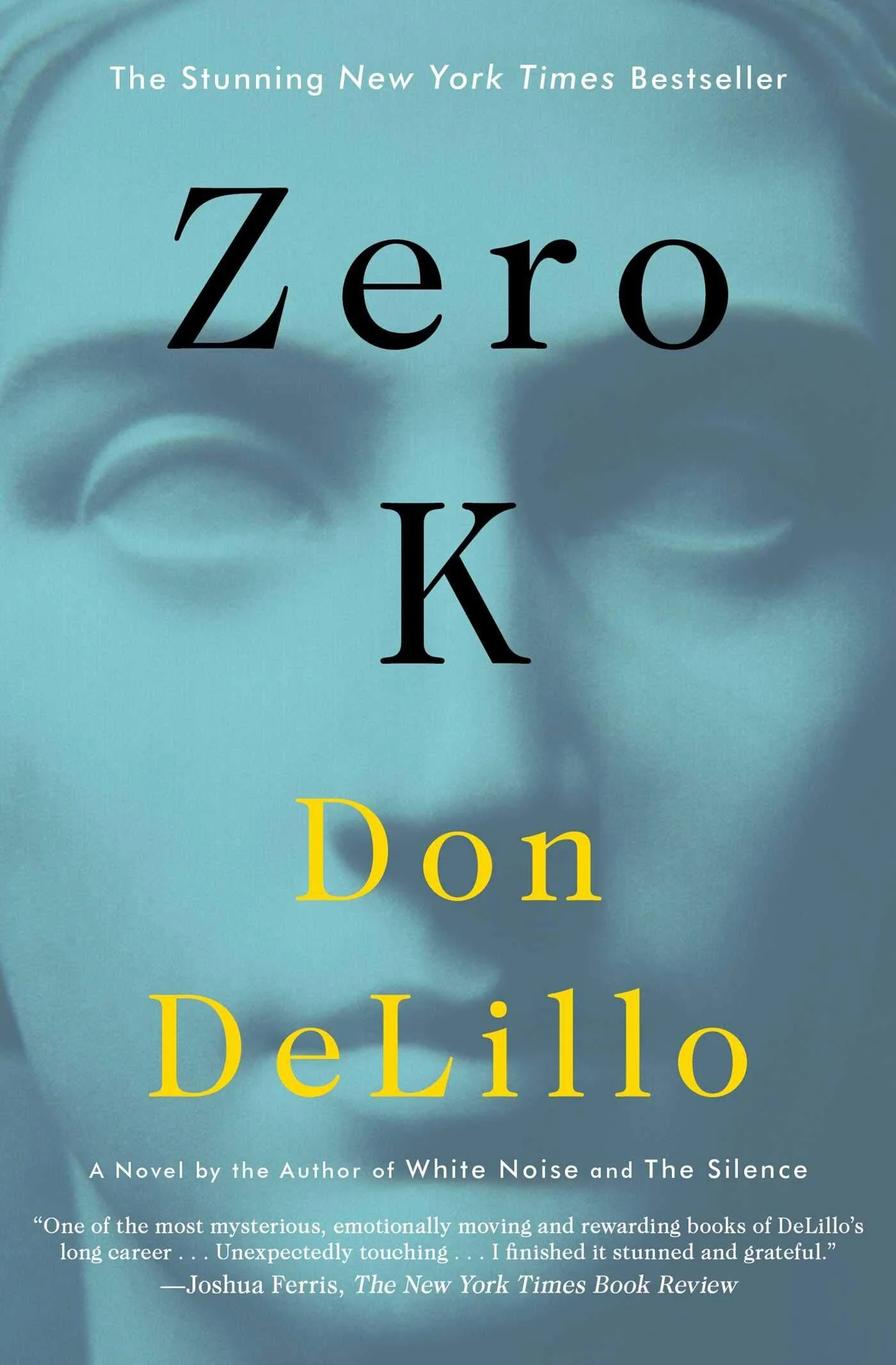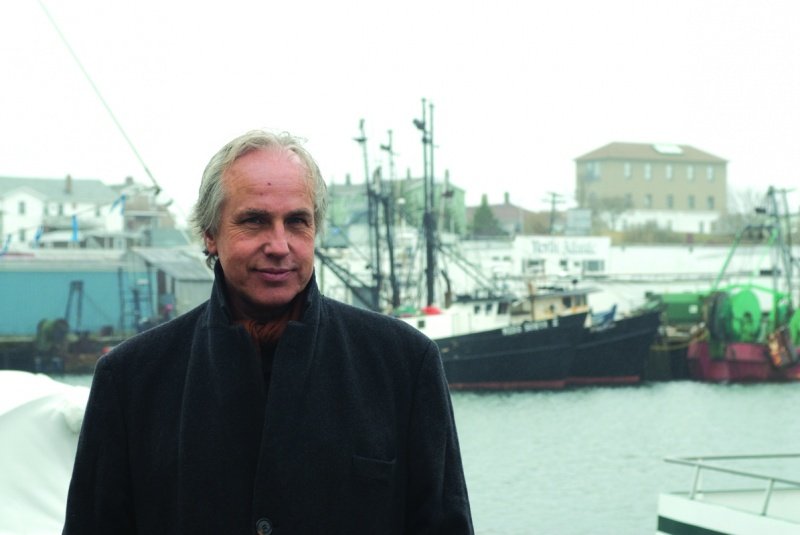Apropos of Nothing, Zero to the Bone
The Heart’s Arctic Spaces in DeLillo’s Zero K
“At a time like the present, when the ever-increasing complexity of life leaves one scarcely a moment for reading…when so many new and threatening problems are arising on every side…at this period of history there are tasks more urgent than the manipulation of words in a harmonious manner.”
- Proust, Remembrance of Things Past
DeLillo eschews public observations about politics yet he’s often chosen to write about people either rifling the edges of power — Oswald in Libra — or in actual possession of it, like the 28-year old billionaire Eric Packer in Cosmopolis, or the Donald Rumsfeld semblable in Point Omega. Then there are the students of power — such as Jack Gladney, the professor of Hitler Studies in White Noise. DeLillo’s imagination tracks our obsession with money and power while simultaneously probing more philosophical concerns about time and mortality. Time, after all, is both money and power.
Published in 2016, Zero K meditates on our contemporary quest for the ultimate power: authority over death. The book is narrated by a man whose father is about to euthanize his terminally ill second wife, our narrator’s stepmother, so that she might then be cryogenically preserved until such time as technology catches up with theory, and the dead are raised incorruptible at last. The mechanics of the process remain obscure, even though a number of figures emerge to “explain it.” Doing so in DeLillo-speak, they clarify nothing. Some recognizable DeLillo types appear, including an enigmatic, mumblingly-sinister Project Director and a cowled monk going by the name of Ben Ezra (a nod to Browning’s poem Rabbi Ben Ezra, whose most famous lines symptomatized Victorian England’s spirit of optimism: “Come along, grow old along with me/The best is yet to be….”). Conquering death would be power’s crowning achievement.
The novel appeared around the same time as the world began hearing about the achievements of a gene-splicing technology known as CRISPR-Cas9 (the acronym stands for Clustered Regularly Interspaced Short Palindromic Repeats). The technology has by now generated gigabytes of hype, including a piece in the Boston Globe in which a columnist speculated about the likelihood of ending death as we know it, and the implications of that for our theologies.
Zero-K suggests DeLillo is not quite so sanguine about the quest. If the fantastical appears to have shaded into the plausible, the plausible nevertheless remains highly unlikely. Competing processes-threatening catastrophes — including global warming, nuclear war, a pandemic — propose their own horizon limits. The clock is ticking. Which doesn’t mean certain optimistic billionaires aren’t pursuing the promise of immortality. DeLillo’s specific depiction of this fantasy suggests the price and consequences of a pursuit animated by humans’ ancient longing to manage death.
In Zero-K, our narrator, who is visiting his father at his underground desert compound, comes upon several wall-sized screens depicting masses of faceless black-uniformed soldiers racing ominously to fight an unnamed enemy. The screens also feature immolations and explosions. The reader is invited to infer connections between the scenes of violence beyond the gated community and the seemingly rational, scientific pursuits within its walls.
The world beyond the gated compound of DeLillo’s ultra-rich is wild, messy, and violent. While his oligarchs have enough money and power to keep it at bay, maintaining their privileges may require the use of force and violence. These, however, occur at a safe remove. In recent novels, his characters’ contacts with the world are frequently filtered through windows and screens focused on destruction and anonymous acts of violence. The “hero” of Cosmopolis, on a quest to get a haircut, cruises through New York in a stretch limo which passes by violent protests, including a man who self-immolates. Our hero ignores these sights in favor of doing deals, enjoying sexual escapades, and a satisfactory visit from his proctologist. The world’s woes can’t touch him. Anything outside his own skin, the entire world of others and otherness, is an abstraction, a number to be played with, multiplied, bought and sold for private gain.
DeLillo underscores the sterility of his leading men’s environments — a stretch limo in Cosmopolis, a museum in Point Omega, a lab in Zero K. His prose itself mirrors these landscapes, disinfected of anything resembling messy human emotions. The result can be chilly works of art indeed. Zero-K, after all. The mirror of his razor-scraped language reflects a central truth: the floating fortresses his plutocrats inhabit are themselves the enactments of a terrified ego and reflect a collective insanity.
*
Sleek and propulsive, DeLillo’s sentences operate on a vertical as well as a horizontal axis. They move the narrative forward while inviting us to linger and reflect — and in doing so they go some way toward recharging our individual power sources.
Proust’s fictional M. de Norpois, whose lament about the limits of aesthetic exploration occurs in a book that still holds its place in the Guiness Book of Records as the world’s longest novel, shimmers with irony. “The novel,” notes DeLillo, “is the dream release, the suspension of reality that history needs to escape its own brutal confinements.” A break, no matter how brief, in our bondage to necessity can make life feel more spacious: suddenly there’s breathing room in a mind normally over-furnished with worries. Novels are portals in consciousness: each reveals a new dimension, heretofore undiscovered, inside the reader. The practice of reading fiction nourishes imagination as rationality melds with dream, offering fresh avenues of possibility to thought. Providing a space of absolute liberation, imagination can be harnessed to practical ends, inspiring experiments with new combinations of matter, as when physicists deploy it in elaborating equations describing the movement of objects in a perfectly frictionless universe such as does not in reality exist. The imagination’s boundlessness can unsettle those unaccustomed to its infinitely malleable terrain. It is, after all, the native habitat of every zombie, vampire, and extraterrestrial to stalk across a page, a film, a dream.
Finally, A Few Words about Zero
Zero, as Fanny Howe observes in her essay on Edith Stein, is another name for the omnipresence of God. It is, according to the Zohar, the beginning and the end of all numbers. Any attempt at monetizing it limits its power by fixing a finite measure to something immeasurable. The feeling of powerlessness in the face of a seemingly overwhelming and intrusive surveillance state can be resisted by a recognition of one’s own Omega point — for it is at the level of the interdependent individual that all value is assigned and actualized. All efforts to claim absolute power over another fail because that other will always exist as a continuity from the zero of the start to the zero at the end of time. And the novel knows this.
Askold Melnyczuk’s book of stories, The Man Who Would Not Bow, appeared in 2021. His four novels have variously been named a New York Times Notable, an LA Times Best Books of the Year, and an Editor’s Choice by the American Library Association’s Booklist. He is also co-editor of From Three Worlds, an anthology of Ukrainian Writers. His published translations include work by Oksana Zabuzhko, Marjana Savka, Bohdan Boychuk, Ivan Drach, and Skovoroda. His shorter work, including essays, stories, and reviews, have appeared in The Paris Review, The New York Times, The Missouri Review, The Times Literary Supplement (London), The Los Angeles Times, The Harvard Review and elsewhere. He’s received a three-year Lila Wallace-Readers’ Digest Award in Fiction, the McGinnis Award in Fiction, and the George Garret Award from AWP for his contributions to the literary community. As founding editor of Agni he received PEN’s Magid Award for creating “one of America’s, and the world’s, leading literary journals.” Founding editor of Arrowsmith Press, he has taught at Boston University, Harvard, Bennington College and currently teaches at the University of Massachusetts Boston. Most recently he has been organizing readings in support of writers in Ukraine, as well as interviewing writers for his For the Record series which appears online at Agni Online (https://agnionline.bu.edu/blog/for-the-record-conversations- with-ukrainian-writers/), as well as on Arrowsmith Press’s website.


